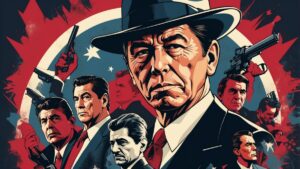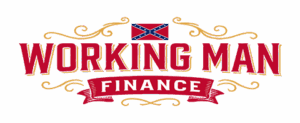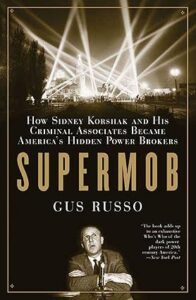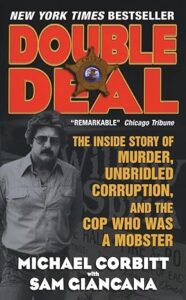When most Americans think of organized crime, images of Italian mobsters from popular films like The Godfather or Goodfellas typically come to mind.
Yet, beneath the well-worn mythos of the Italian-American Mafia lies a more complex, far-reaching web of influence—one largely hidden from mainstream historical narratives.
As investigative journalist Gus Russo makes clear in his book Supermob: How Sidney Korshak and His Criminal Associates Became America’s Hidden Power Brokers, the true architects of organized crime in America were not solely Sicilian dons, but a cadre of Jewish figures of Russian origin who quietly directed the course of American industry, politics, and even foreign policy for decades.

The Rise of the Supermob
Russo frames his revelatory account around the enigmatic figure of Sidney Korshak, a Jewish-American attorney based in Chicago who became a critical liaison between legitimate business and the underworld.
Korshak, often referred to as a “mob fixer,” was no mere consigliere.
He operated at the highest levels of corporate and political America, all while serving as a trusted figure within the Chicago Outfit—a powerful criminal syndicate with national and international reach.
Korshak’s rise paralleled that of Ronald Reagan, who owed both his Hollywood career and his political ascendancy in California to the same criminal networks that buoyed Korshak.
Russo details how Reagan benefited from close relationships with Korshak and other mob-connected individuals who operated within the entertainment and real estate industries.
These figures, hailing from cities like Chicago, Cleveland, and Detroit, were not the stereotypical Italian gangsters but Russian-Jewish immigrants who had long since traded muscle for money and political influence.
Vegas, Hollywood, and the Seizure of Power
Russo outlines how this elite group—comprising lawyers, real estate moguls, labor leaders, hotel magnates, and military contractors—helped shape modern Las Vegas and Hollywood.
Their ventures blurred the line between legality and criminality, all while deeply influencing American culture and governance.
During and after World War II, the Supermob leveraged their insider connections in the Office of Alien Property to seize Japanese-American assets.
As thousands of families were placed in internment camps by order of the Roosevelt administration, their confiscated properties—later worth billions—were quietly transferred to Jewish associates of the Supermob.
Russo identifies David L. Bazelon, a future federal judge, as a key operative in redirecting this wealth to his criminal allies.
This appropriation of wealth raises uncomfortable questions about the frequently recounted narratives surrounding European Jewish property losses during the Holocaust.
Russo’s expose challenges the imbalance in historical memory and highlights how some Jewish crime syndicates amassed wealth from the misfortune of others.
The Evolution into Finance and Industry
From these origins, the Supermob evolved into an empire with tentacles in every major American industry. Russo argues that their reach touched the lives of nearly every American during the mid-20th century.
More than just criminals, they were power brokers—controlling labor unions, shaping media empires, and operating in financial markets.
Russo notes:
“This ‘Kosher Nostra’ stressed brains over brawn and evolved into a real estate powerhouse, an organized-labor autocracy and a media empire. If power does, indeed, corrupt, then the Supermob corrupted absolutely.”
These figures worked hand in hand with Italian and Irish mobsters but remained shielded from law enforcement due to their deniable associations and robust political alliances.
Through their network of influence, they curated the cultural landscape—producing the films, music, and political campaigns that defined mid-century America.
Double Deal: Another Look Behind the Curtain
In Double Deal: The Inside Story of Murder, Unbridled Corruption, and the Cop Who Was a Mobster, former mob-connected police chief Michael Corbitt, alongside Sam Giancana (nephew of the famed mob boss), continues the investigation into the shadowy forces behind the Chicago Outfit.
Their book sheds new light on the true hierarchy of the American underworld.
According to Corbitt and Giancana, the real power in Chicago wasn’t the rotating cast of Italian mob bosses the media obsessed over, but a mysterious Jewish-American gangster named Hyman “Hal” Larner.
A close associate and eventual successor of the infamous Meyer Lansky, Larner maintained deep connections with both the CIA and Mossad, orchestrating criminal operations that spanned the globe.
While media reports labeled Larner an “associate” or a “mystery man,” Corbitt reveals that he was the Outfit’s financial strategist and chief international operator.
His influence extended from Las Vegas to Panama, from Iran to Washington, D.C.
Larner, Mossad, and International Crime
Corbitt reveals that Larner, under the directive of Lansky, facilitated arms smuggling to Israel with the help of Mossad agents.
Much of this covert activity was conducted through Panama, where Larner commanded immense power over financial and political institutions.
His operations granted the Chicago mob a kind of diplomatic immunity—particularly from Justice Department scrutiny.
Giancana and Larner’s contributions to arming Israel during the 1967 Six-Day War bought them favor at the highest levels of the U.S. government.
President Lyndon Johnson, grateful for their support of the Zionist cause, allegedly instructed the Justice Department to drop its investigations into the mob.
This political quid pro quo exemplifies how organized crime intersected with U.S. foreign policy in ways the public would find unthinkable.
In the ultimate twist of betrayal, Larner is believed to have orchestrated the murder of Giancana in 1975, ensuring his continued control over Chicago’s criminal enterprises.
While Italian-American gangsters were picked off one by one by federal authorities, Larner and his ilk thrived, largely unnoticed by the public.
Rethinking the Mafia Narrative
The revelations in Supermob and Double Deal compel us to reevaluate the simplistic story that Italian mobsters controlled organized crime in America.
The truth is far more nuanced—and disturbing.
A powerful, often invisible, network of Jewish-American crime bosses operated in the shadows, often shielded by their political affiliations, Zionist activism, and legitimate business ventures.
These figures did not merely coexist with traditional mob families; they directed them.
Through strategic partnerships, international connections, and vast financial resources, they created a criminal oligarchy that reshaped American society.
Their influence continues to echo in modern politics, entertainment, and finance.

Conclusion: Pulling Back the Curtain
Gus Russo and Michael Corbitt, among others, have offered rare glimpses into the true machinery of American organized crime—a machinery driven not just by brute force, but by calculated manipulation, global alliances, and institutional corruption.
The Supermob was not merely a crime syndicate; it was a covert elite, adept at shaping public perception while enriching itself at the expense of democratic ideals.
Its legacy challenges us to question not only our historical narratives but the current structures of power that may still operate in its shadow.
As the curtain lifts on the true history of organized crime in America, one thing becomes clear: the story we’ve been told is only a fraction of the truth.


